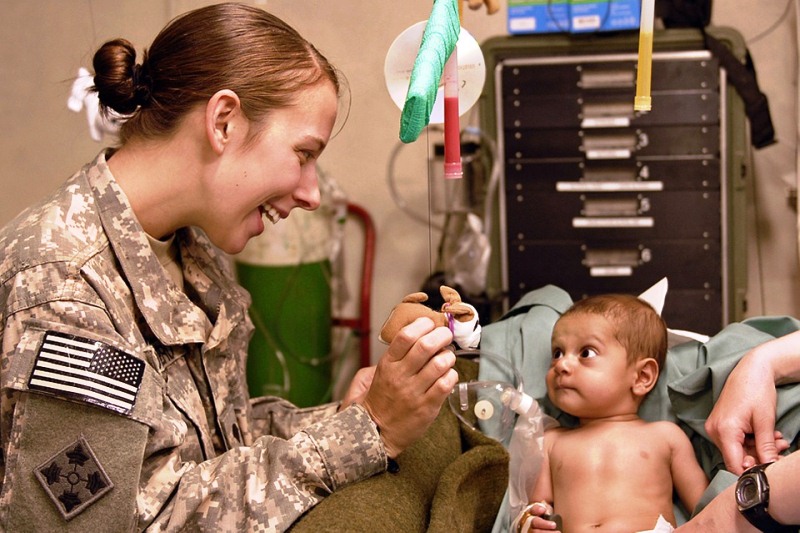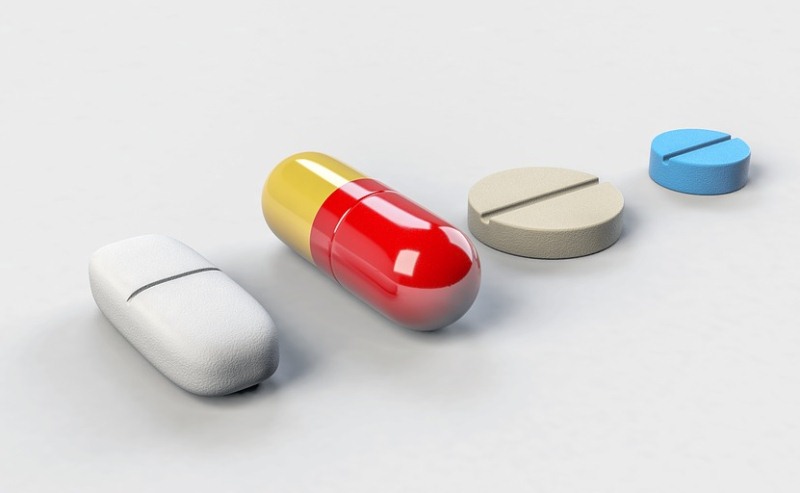5 Most important things to note before you show your kid to a doctor
You may be haste when you take your kid to a doctor for a cold or fever. When the doctor asks details about your baby’s birth such as weight of the kids, many mothers may not be able to give a suitable answer. She may forget it in haste and tensions of those moments. Usually such details are noted in discharge files. But when you leave home in haste, where is the time to take that file with you! Parents are a little anxious regarding their kids’ health. That’s why for silly discomforts too they take their children to hospital. But when this anxiety crosses boundaries, it can create many problems as well. In excess tension, you may forget what pharmacist told about the intake of medicines. If you make your own assumptions and take your own decisions regarding the dosage of medicines, it can lead to many problems. So, let us take care of these 5 important things before you take him to pediatrician for the next time.

Never forget important details associated with the disease
In many cases, parents may not be able to give details of the disease, when they see the doctor. When you take your kid to hospital, you need to remember a few important things.
1. Health card includes details such as blood group of the kid, body weight at the time of birth, details of vaccination etc. When you go to see the doctor, keep this card along with you. If your kid has any form of allergies, such details should be strictly noted in this health card.
2. Take along with you, the file which contains the details of the most recent checkup, consultation and prescription. It’s very important. If you have taken treatment for the same disease condition earlier, such details may be noted in the file. If certain symptoms are repeated over a time period, they may point to any other disease or health issues. If doctor need to know all these facts, only details of previous consultation can help.
3. You can keep a note of all details and doubts in a piece of paper before you take your kid to a doctor. When you sit in front of the doctor, you may forget many important facts. So it’s always better to have a short note of important points you need to ask doctor, or symptoms you noticed in the past few days.
4. If you are doubted for even silly matters, never hide from doctor. You should not leave even small details such as the time when those symptoms came to your notice, food taken just before showing those symptoms, most recent travels etc.
5. In some kids, diarrhea appears in kids two or three days just before fever starts. You can give those details also when you consult doctor.
6. If your kid is admitted in hospital, keep note of even simple details, his change of condition etc. If he woke up and cried at night, did you feel excess cold or heat, details of thirst and appetite etc are a few such important details.
Let us learn medical terms and the language of medicine
In most cases, doctors will be specialized in treating a particular disease condition, and the patients who consult him may also follow the same pattern. So they use short hand and short names for their frequent used terms. But if parents can’t understand its meaning, they may feel worried.

1. If you don’t understand the meaning of medical terms told by doctor, never hesitate to ask him and clear the doubts. Isn’t it better to ask him rather than making your own assumptions?
2. If doctor has asked for blood test, you should ask him in detail about the test to be done, and why to do so. In most cases, a patient is instructed to take tests to know about other disease conditions which follow certain symptoms. For detailed diagnosis too, doctor may prescribe a few more tests.
3. Once the doctor has given prescription and started treatment, you can ask him how long it will take to get over the disease, and what chances could happen as a part of the treatment or medicines taken. If you know in earlier that, it may take at least two weeks to get over the disease conditions and to start eat properly, it can reduce your anxiety a lot. It also saves your time for consulting a doctor, which may be not at all needed.
4. After doctor gives medicine, he may ask to consult again if your kid shows certain symptoms. But some parents ignore that fact. In some cases, his body may react negatively to a few medicines. You can clear these doubts with doctor at the time of consultation.
Believe in authenticated information only
Nowadays every detail is available on net. But it’s not good to completely rely on such pieces of information. Use such details for reference only. Otherwise it can lead you to excess anxiety or useless problems.
1. The person who can give you the most authenticated information regarding your health and disease states is none other than doctor. If you want to know in detail about a particular disease, it’s always better to consult a doctor.
2. You can clear your doubts with doctor; changes shown by kids after taking drugs, when can we bath him and send to school, what food should be given etc to mention a few.
3. If only needed, seek an expert’s opinion for advanced diagnosis or treatment as suggested by your doctor. It’s always a good choice to get a second opinion for serious disease conditions.
4. If you want to get more information regarding a disease or treatment method, seek your doctor’s advice first before surfing net. He may suggest you authenticated books or websites for reference.
Correct dosage at right time
Dosage of medicine is normally prescribed in accordance to the weight of your kid, not his age. For the same reason, if you follow the dosage given on the wrapper of medicines, it may create health related issues in kids with low weight.

1. While you buy medicines, clear all doubts of dosage of medicine with the pharmacist. Certain medicines may be prescribed to have in empty stomach. But you need to clear the doubt if your kid can take tea or biscuit before this dosage is given to him. In some cases, serving bananas or milk added beverages can give adverse effects. You should clearly know these details, either from doctor or from pharmacist.
2. Filler is best to give medicines for kids. Fillers available along with medicines have measuring scale too. It helps to fill the medicine into filler with correct measurement and give it to him fully. It also saves a lot of medicine which sticks on the medicine cap, which you need to clean properly after every use.
3. In some cases, the intake of a few pills or syrups together reduces the effect of certain medicines. So you should ask in detail, in what interval the different pills or syrups should be taken.
4. Ask doctor you need to continue medicines or take some precautions for a short period soon after the disease is fully cured. Certain medicines have booster doses in the gap of 3 or 6 months.
Let your kid to talk
Certain kids show interest to tell doctors what’s his problem, where is the pain etc. So encourage him to communicate with doctor. It gives many positive effects.
1. Kids who have just started speaking own a few words which can easily understood by doctor. They express their sadness and pain through such words and doctors know how to communicate with them.
2. When he reaches 6, he can clearly answer to doctor’s questions. Encourage him to talk to the doctor about disease conditions such as throat pain, reading problems etc. Give him opportunity to give answers to doctor’s questions as well.
3. There is yet another benefit when your kid interacts with his doctor. He starts learning about those disease conditions also. If so, if he feels such disease symptoms for the second time, he never hesitates to tell his parents.
Let’s record the details of disease stages
There is a trick to avoid problems due to your tensions and ‘memory’ problems, when you take your kid to a pediatrician.
1. You can record your conversation with doctor in your phone, with doctor’s permission. Even if you feel doubted about treatment or dosage of medicines, this recorded message can help you a lot.
2. If you feel extra nervousness when you take your kid to hospital or doctor’s clinic, you can take a close friend of yours with you. He will definitely ask doctor after the matters in detail and better communicate with doctor about previous treatments, medicine dosages given and other important details.
3. Keep note of important points told by the doctor. If you can’t memorize everything in detail, such notes give you an instant solution.
4. Before you leave doctor’s room, you can repeat whatever you understood and tell everything once to the doctor also. It helps you to assure yourself that you have understood the correct details, and make corrections if needed.
Image source: Pixabay
Also read a few more articles on parenting. Click on the images in the gallery to read















Recent Comments